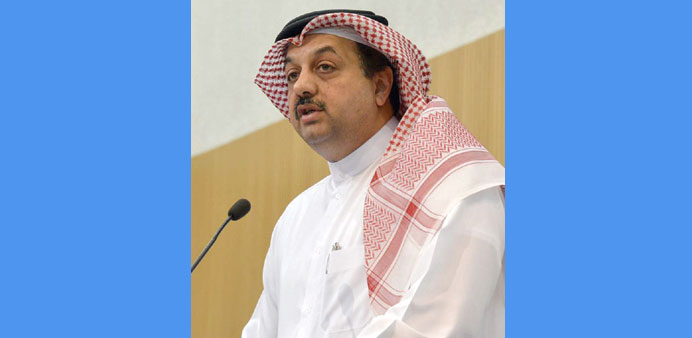The Gulf Studies Centre in the College of Arts & Sciences (CAS) at Qatar University (QU) hosted a symposium themed “The Gulf Co-operation Council States: Role and Accomplishments” yesterday.
The event, held on the sidelines of the GCC summit, aimed to highlight the goals and achievements of the Gulf states and discuss the GCC’s role in serving the common interests and security of its states.
It drew around 250 dignitaries, officials and experts, including HE the Minister of Foreign Affairs Dr Khalid bin Mohamed al-Attiyah, GCC Secretary-General Dr Abdul Latif bin Rashid al-Zayani, QU president Professor Sheikha Abdulla al-Misnad, CAS dean Dr Eiman Mustafawi, GSC director Dr Abdullah Baabood and several QU officials, faculty members, staff and students.
Students had the opportunity to exchange ideas and views on the GCC’s accomplishments, integration process and role in achieving economic development, sustainability and social integrity in its states and the Arab region.
The programme agenda featured plenary sessions and discussions as well as distribution of awards for winners of the GCC Poster Competition.
“This significant symposium is being hosted for the first time in the GCC region and Qatar in particular. It reflects the GCC’s contribution to ensuring the sustainable growth and development of its states in various areas, such as the sociopolitical, human development, economic and commercial fields. It also discusses the GCC’s role in solving many issues in the Arab region by shaping policies with the aim of ensuring the security and stability of countries in the Gulf and Arab regions,” HE Dr al-Attiyah said.
HE al-Attiyah praised the Gulf Co-operation Council for achieving its desired objectives in all sectors - economic, security, political, financial, cultural and social.
The Foreign Minister noted that in the field of development and on the basis of the council’s vision to achieve sustainable development, the GCC countries strengthened their regional and global partnerships.
In the economic sphere, the Foreign Minister pointed out that the council has met several strategic objectives in the financial, commercial, transportation, customs and electrical sectors.
In the political field, the Foreign Minister said that co-operation among GCC member-countries enabled the Council to adopt common positions on political issues, and formulate policies based on the principles of good neighbourliness and non-interference in internal affairs, and respect the sovereignty of each state, and also adopt the principle of peaceful dialogue as a means to settle disputes.
The GCC became a main forum to support the Arab, Islamic and global issues in international fora, particularly the Palestinian issue, the Foreign Minister said, pointing out that in the fight against terrorism, the GCC countries have been able to successfully confront the “unfair attack” that tried to link Islam and terrorism.
The Foreign Minister underlined that the GCC countries support the states’ right to obtain nuclear energy for peaceful purposes. However, they have a firm position towards making the Middle East a nuclear-weapon-free zone.
GCC Secretary-General Dr al-Zayani said: “We are delighted to see QU students engaged in this important forum that shows the GCC’s core role and achievements in many areas in the region. We also encourage the Gulf Studies Centre’s students to contribute in enhancing the research portfolio on this topic by producing innovative projects and scientific studies.”
QU President Professor al-Misnad added: “This event highlights the necessity to work together in order to overcome the challenges from a changing world. It also shows the Gulf Studies Centre’s core role in serving the wider community and the region, and its contribution to ensuring sustainable social and economic development in Arab societies.”

HE the Minister of Foreign Affairs Dr Khalid bin Mohamed al-Attiyah.
